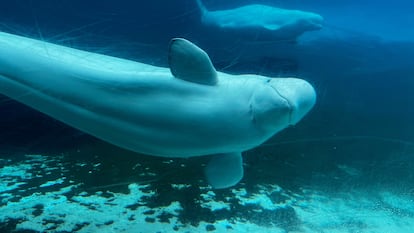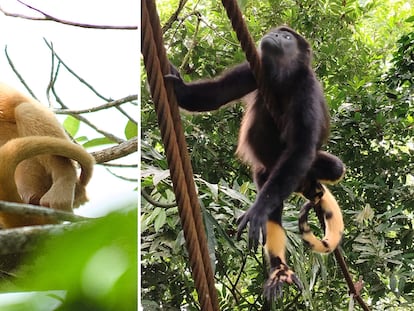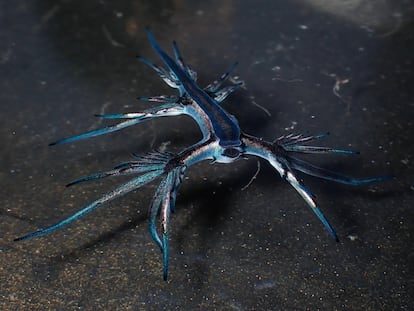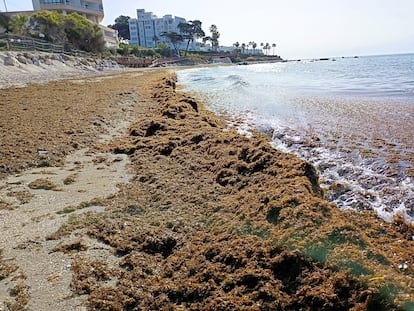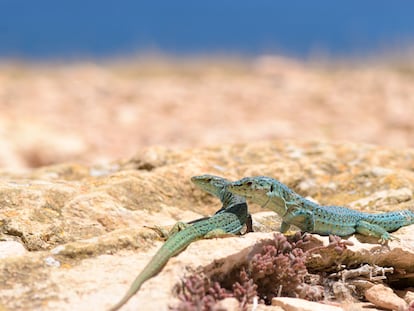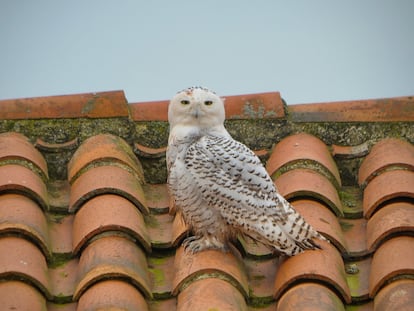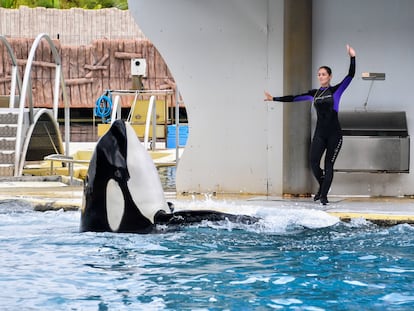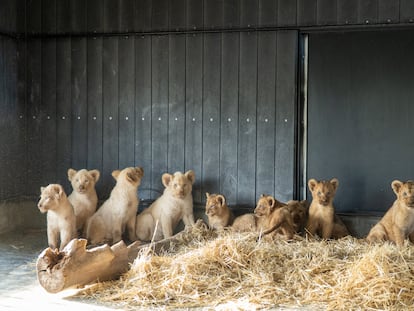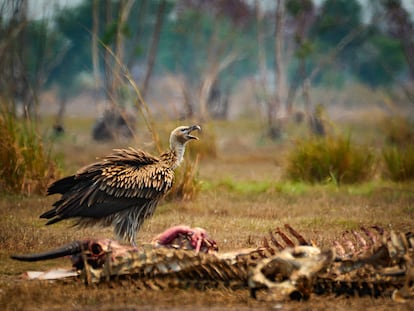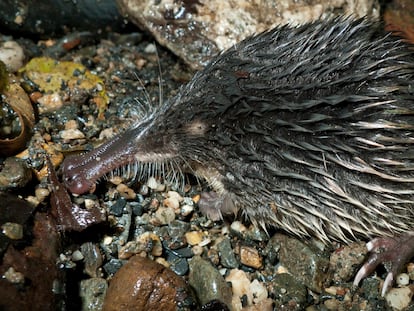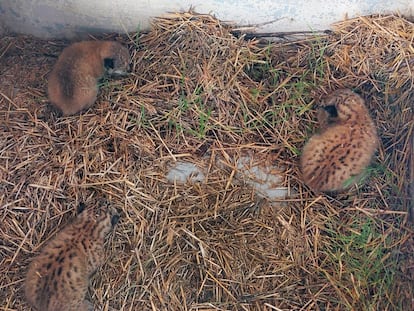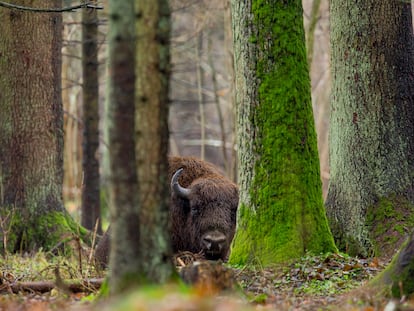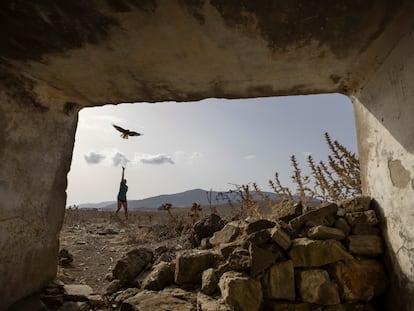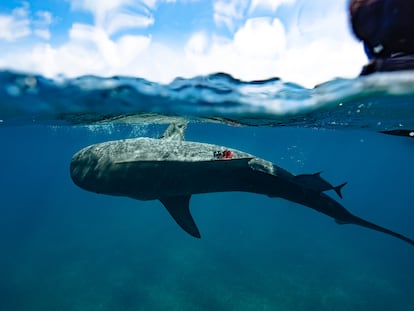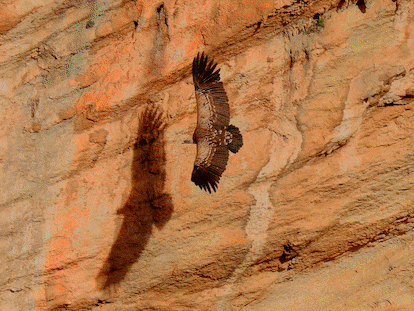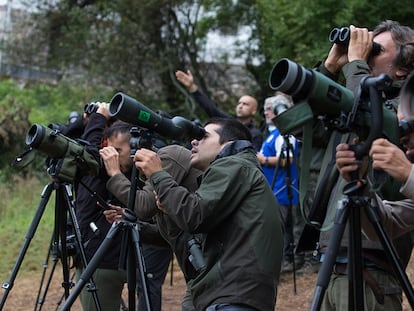Scientists are calling for more research to understand the role of environmental factors such as exposure to chemicals in these anomalies
This summer, it was sighted in Cadiz, Valencia, Alicante, and Lanzarote. Its sting can cause skin irritations similar to those of a jellyfish
Deputy director says it is common practice in the country to donate animals like chickens, rabbits, guinea pigs and horses that would otherwise be euthanized
A single ‘Rugulopteryx okamurae’ can form up to 600 copies of itself, and its steady advance shows no signs of slowing, with devastating effects for local biodiversity
The rapidly advancing predator is a good swimmer and has also colonized Formentera and satellite islets in the Mediterranean. Scientists warn other micromammals that control the insect population are also disappearing
Analysis of the isotopes of their feathers rules out the possibility that they were born in captivity and suggests that they came from somewhere in the Arctic and may have arrived on a boat
The adult female, seeking a new home with her calf after the closure of Marineland in France, faces the grim reality of cetaceans used in human entertainment: there is only one marine sanctuary and total release into the wild is not considered for specimens bred in captivity
The 12 felines will remain at the AAP Primadomus facilities in Villena, Alicante, until they recover and are placed in a reserve or zoo
A new study estimates that mankind could wipe out another 1,300 species in the next 200 years, affecting their vital role in global ecosystems
The IUCN has changed the feline’s status from Endangered to Vulnerable. We spoke with some of the people who brought lynxes back from the brink of extinction through decades of uphill work
The invasive species, native to the rivers of central Europe, is already found in a large part of the main basins of the Iberian Peninsula and is a danger to native fauna
Despite the good data, 344 more breeding females are still needed for the species to reach a favorable status
Since May 2020 the pod of 15 Iberian killer whales has sunk seven vessels — five sailboats and two Moroccan fishing boats — in waters that coincide with their migratory route
The ‘Spanish platypus’ is unique to the Iberian Peninsula and a jewel of evolution that has lost up to 70% of the geographical range it occupied three decades ago
Births of this type are not frequent, although there are several cases of females choosing buildings to shelter and give birth
The Mary River turtle and the aye-aye, a primate endemic to Madagascar, are among the endangered and little-known animals receiving help from the Zoological Society of London’s EDGE of Existence program
A study of hair samples from 50 animal species in Bialowieza, Poland, collected over the course of seven decades, reveals the invisible effects of fossil fuel emissions
The bomb shelter – built in Spain under Franco to repel an Allied attack that never occurred – was converted into an improvised scientific lab, to track the movements and lives of birds
Decades ago, Italian canids crossed the Pyrenees into Aragón where their Iberian cousins live
The cetacean has become famous on the internet for the damage it has caused to boats off the Spanish coast. But it is not just one animal behaving this way but 15, and not everything that is said about them is true
Scientists placed devices on the marine predators, who helped map up to 92,000 square kilometers of seagrass in the Bahamas
Every year, around 80 species whose natural habitat is far from the Iberian peninsula are sighted by enthusiastic birdwatchers who don’t mind long trips and longer waits to get a glimpse of these uncommon visitors
Thanks to the legislation – which was only opposed by the far-right Vox party – pets and wild species will no longer be considered ‘objects’ in the Spanish Civil Code
Rising temperatures have prompted many species to change their behavior: some have settled in the south of the Iberian peninsula, while others have stopped migrating altogether
Authorities report, however, that the fire is not yet completely extinguished. Conservationists are concerned about the effect on plant and animal life and say the area should have greater protection
The population of the ‘Ursus arctos’ has risen steadily in the past 30 years, with thousands of visitors now coming to see the animal. But not everyone is happy about its resurgence
